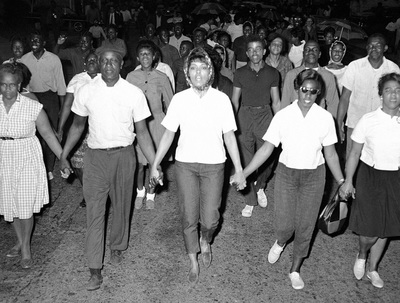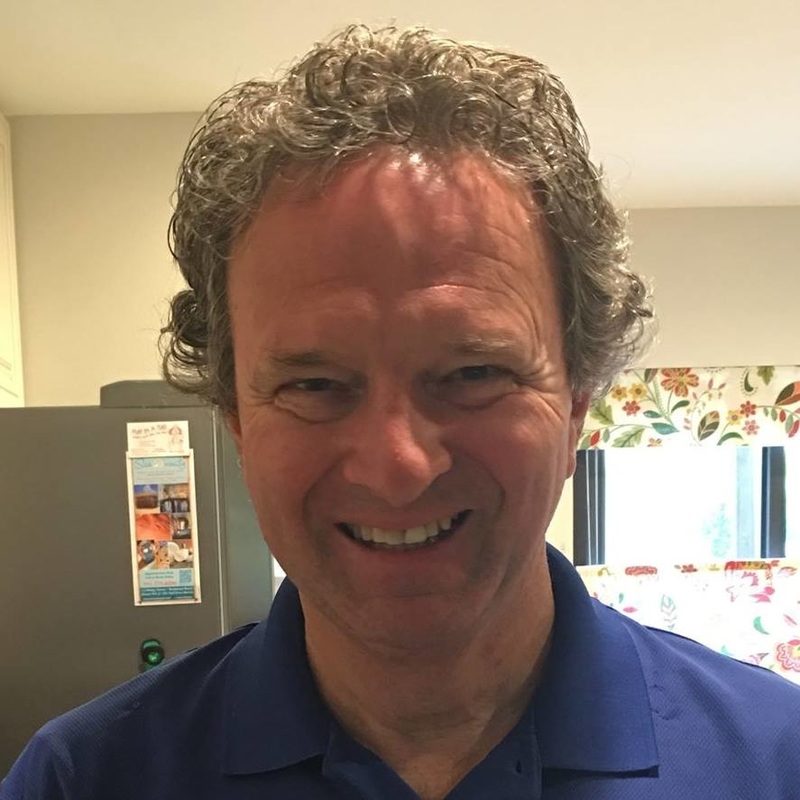|
Birmingham? Selma? Nope. Cambridge Maryland in 1963-64. Last week I shared some personal remembrances from the 1969 integration of schools in Dorchester County, Maryland. Based on the responses I received, others had similar experiences. But there is more to the story than the recollections of a ten-year-old boy. Much more. Several years ago, I ran across a document prepared by the United States Commission of Civil Rights in 1977. This document, which you can read here, shares the not-so-pretty things that went on behind the scenes. Cambridge, the county seat, experienced a long and unflattering period of racial strife. A decade ago, NPR featured Cambridge in one of its reports. Many locals remember the visit by H. Rap Brown, a civil rights leader at the time, whose challenge, "If Cambridge don't come around, Cambridge got to be burned down" led to the torching of a black elementary school. These actions brought national attention, and sadly reinforced the racial stereotypes of many whites. Lost in all this was the segregation experienced daily in Cambridge. In the same NPR story, resident Sylvia Windsor spoke of one of the main business districts in town: "One side of Race Street was for the whites and one side was for the blacks, and they never crossed over and we never did either," That segregation carried over to the schools and like many communities of the time, black schools were underserved. Resident Enez Stafford Grubb told NPR: "Whenever we received a textbook, it was a used textbook, and there was always a slip with the name of white students by the time we got it." Dorchester County's first effort to abide by Brown v. Board of Education was a "freedom of choice" plan that would allow students to attend the school of their choice, regardless of racial makeup. Not much changed. That year, 1963, just two black students enrolled in white schools. Pressure mounted, The State Department of Education and the NAACP cited Dorchester County for ineffective desegregation efforts. In March, 1966, the county school superintendent was directed by the state to "prepare immediately for complete desegregation" by the 1967-68 school year. Very little happened. Black high school students continued to be bussed past white high schools. When pressed by the state, the superintendent stated the the district would go to court before meeting desegregation mandates. He defended the freedom-of-choice plan despite lackluster results. In 1967 a biracial steering committee was formed to study remedies, but the superintendent disregarded the recommendations. Two-thirds of Dorchester County's black students continued to attend segregated schools, and many were bussed excessive distances to maintain the status quo. It took the threatened loss of federal funds to finally get things moving. A deadline was set for September, 1969, the year my classmates and I started attending integrated schools. If only the story ended there. Sadly, continuing into the 1970's there was evidence of discriminatory treatment of black students and educators in Dorchester County. In 1971, the federal government gave the district 90 days to remedy inequitable employment practices. The superintendent's response: "There isn't any teacher, child, parent, or otherwise who feels discriminated against . . . I reiterate there isn't any way within 60 days we can tell you who is going to be in what school." The school board had had enough. The superintendent's resignation was accepted in June, 1971. Within a month, the new superintendent met all federal mandates. Three weeks later, he submitted a plan for total integration of county schools. What had dragged out for years, was completed in a few weeks. None of this was known by the sixth graders entering their second year at integrated Hurlock Elementary School. I can't count the number of times I've gone back and reviewed the report I've shared with you. It had that kind of impact on me. More to the point, it carried over to my writing. In Harvest of Thorns, you'll read of images and attitudes similar to those in Dorchester County a half-century ago. You'll read stories of hope and triumph, too; also like Dorchester County. Comments and similar experiences are welcome. I particularly welcome those from my classmates who may have experienced the other side of segregation in Dorchester County schools all those years ago. Leave your comments below or on my Facebook page. Thanks for reading!
4 Comments
Margaret Ray
11/9/2016 03:54:20 pm
I remember this Paul..I was going to summer school that summer. After H Rap Brown came to town, Mom made me stay home from school. I am glad you are doing this. Brings us all back.
Reply
Estella Mae Travers
7/26/2021 08:47:27 am
I just remember a lot that happened to me and my sister the second year after the first 2 went to try out school integration y mom let me and my sister go It was not a good idea I am glad someone else got to read about this Thank You
Reply
Debra Rosenthal Messick
2/23/2023 12:56:03 pm
Thank you so much, Paul, for sharing this! (I covered a talk by former Mayor Jackson Stanley who discussed being made by her dad to attend integrated school, along with her anger, prejudicial treatment by guidance counselor, but also forming friendships with white students and ultimately realizing her father had been right in his goal of getting his children the best education!
Reply
6/11/2024 09:30:32 pm
What an insightful read on the continued journey of integrating Dorchester County Schools! As a longtime resident, I've heard many stories about the challenges and triumphs of our local education system, but this article sheds light on the lesser-known aspects. The dedication of those who worked tirelessly to ensure equality and fairness in our schools is truly inspiring. How has the legacy of this integration effort impacted our schools today? 📚 Are there any upcoming community events or forums where we can discuss and celebrate these historical milestones? It’s essential to remember and honor the progress we've made while striving for an even better future for our students.
Reply
Leave a Reply. |



 RSS Feed
RSS Feed